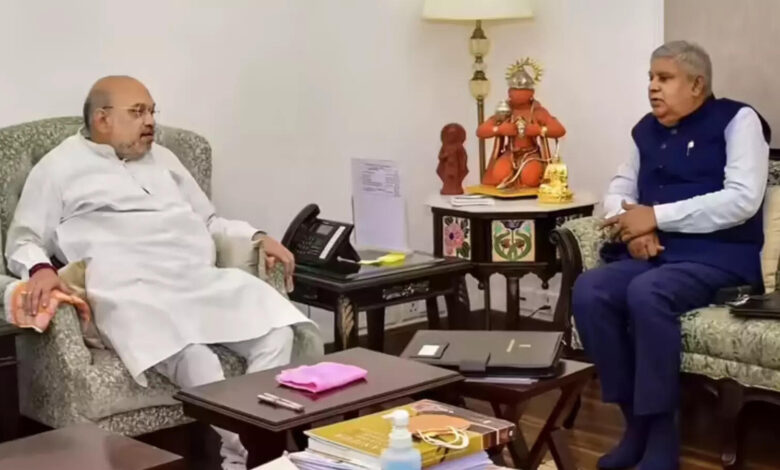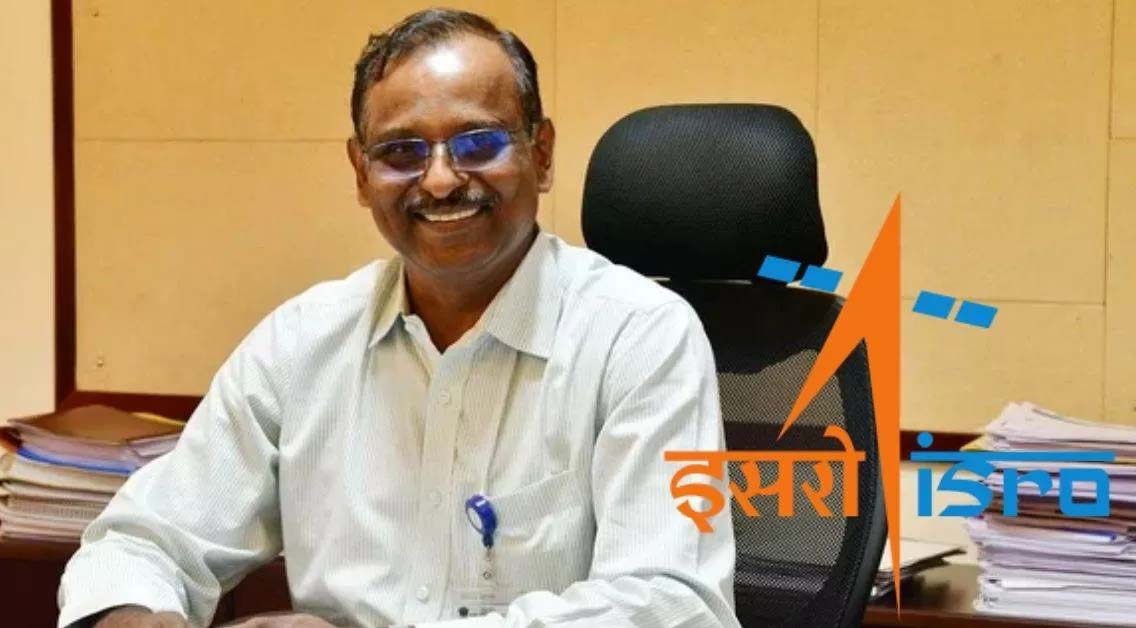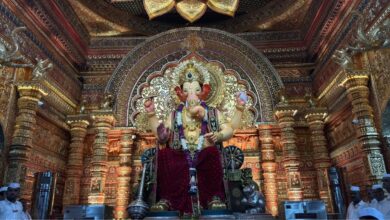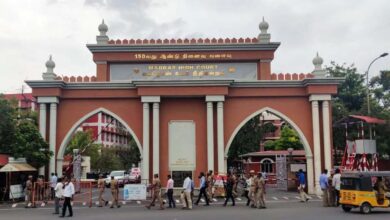अमित शाह ने कहा, पूर्व उपराष्ट्रपति जगदीप धिकर पर चर्चा करना आवश्यक है।

In recent discussions about former Vice President Jagdeep Dhankhar’s resignation, Home Minister Amit Shah stated that there is no unnecessary need to speculate on the matter. Since the resignation, there has been little information about Dhankhar’s current whereabouts, prompting questions from various opposition leaders, including Rahul Gandhi, concerning his health and the reasons behind his absence.
When asked about Jagdeep Dhankhar’s situation and the media’s silence surrounding him, Amit Shah firmly remarked that this issue should not be dragged out. He acknowledged Dhankhar’s significant contribution while in office and emphasized that his resignation was due to personal health concerns. Shah urged everyone to refrain from unnecessarily prolonging the discussion surrounding the former Vice President’s departure from his role.
Rahul Gandhi recently addressed attendees in the Central Hall of Parliament, questioning why Dhankhar had seemingly vanished from the public eye. He expressed curiosity over the timing of Dhankhar’s resignation and suggested that there might be more to the story than meets the eye. Gandhi pointed out that on the day of Dhankhar’s resignation, Congress leader K.C. Venugopal remarked that the Vice President had “stepped down.” This prompted Gandhi to assert that there is a significant narrative surrounding the former Vice President’s decision to resign, hinting that some individuals may be aware of the deeper story while others remain in the dark.
Gandhi’s remarks raised concerns about why a figure in such a prominent position would feel compelled to go silent, as he posed the question: why is the Vice President of India in a situation where he cannot even voice his thoughts and needs to remain hidden? Such assertions suggest an environment of intrigue and uncertainty surrounding the circumstances leading to Jagdeep Dhankhar’s resignation.
The political discourse surrounding this issue highlights the increasingly complex relationship between public figures and the media, especially in a time when accountability and transparency are critical. The reactions from various political leaders point to a larger narrative about the dynamics of power, the role of public office holders, and the expectations from them.
As the story unfolds, public interest will likely continue to intensify regarding the myriad of implications stemming from Dhankhar’s resignation and the ensuing queries regarding his health and stance. Every new piece of information that emerges will shape the conversation and potentially influence public perception about not only Dhankhar’s legacy but also that of the current administration.
In summary, the confusion and speculation surrounding Jagdeep Dhankhar’s departure from office underscore the political maneuvers often present in such leadership changes. As leaders like Amit Shah and Rahul Gandhi weigh in, the discussion remains robust, revealing both the challenges and the expectations that accompany high offices in India.
The broader implications of Dhankhar’s resignation could serve as a lens through which one examines the state of politics in India today, the responsibilities of elected officials, and the reactions and expectations from the populace and fellow political actors alike. The coming days will provide further insight into how this situation evolves and the impact it may have on Indian politics.





